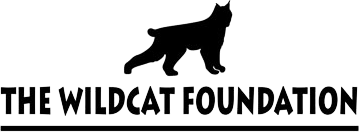

|
The Wildcat Foundation expects all proposals for new project funding to be preceded by a relatively short letter or email message of inquiry of no more than three pages in length. The inquiry should indicate the amount requested and the overall project budget. It should offer a summary of the project and its goals, objectives and time frame, and how its anticipated impact will be evaluated. It should describe how the project would fit with our grant guidelines. If the Foundation invites a full proposal, it should cover the same ground but in detail, and should respond to whatever issues we raise based upon the project description in the inquiry. Potential grantees should be aware that the Foundation will concentrate its assistance in areas of Africa that contain concentrations of at risk but savable wildlife and wild places, areas where great examples of the natural world still survive but are vulnerable because long-term protection strategies are not yet firmly established. Ideally, funded projects will help provide a bridge to establishing those long-term strategies. In this regard, applicants should summarize the current stability of the country in which the project is located, and discuss the capacity and inclination of the government there to promote sustainable development and sound wildlife conservation. They should also indicate the experience applicant has in that country and with relevant officials, and identify project personnel and their qualifications. And they should provide overall context by identifying the nature of other conservation activities they and others are undertaking in the country, particularly as those relate to the proposed project. The planned budget for the project should be described, including identifying other funding that is available or being pursed. The highest ranking projects are those that offer strong potential for leveraging the most conservation for the investment. This could involve imperiled habitat that supports highly rare species or a highly rare or especially biodiverse-rich ecosystem type. Or possibly a severely threatened keystone, umbrella, iconic or apex predator species whose presence in viable populations is required to maintain overall ecosystem health. Priority is given to projects that are urgently needed to forestall an immediate threat that could result—or to intervene where the threat has become a reality that is already resulting—in a loss of imperiled wildlife or wild lands. The Foundation favors projects that offer good prospects that protection will become long term. Letters of inquiry should comment, for example, on whether a project intended to curb poaching and/or illegal wildlife trafficking of imperiled species can itself achieve significant long-term reduction in the illegal activity, or offer prospects that sufficient other funding can be found to continue appropriate protection for the long term. Projects that offer the best prospect of leading to long-term success will have priority. Recent projects have: leveraged a successful NGO bid to acquire management of an important national park; funded provision of surveillance aircraft, a helicopter and other equipment to assist law enforcement protecting against elephant poachers; established an emerging park's first permanent anti-poaching force; financed development of six aggressive NGO-led projects to employ intelligence-led law enforcement against the various countries' major ivory and other wildlife contraband traffickers; created a central international wildlife crime database and analysis unit to support wildlife anti-trafficking law enforcement; provided new firearms to several park ranger units that were outgunned by para-military poaching groups; extended anti-poaching operations to additional land acquired by a prominent national park; developed and funded risk-mitigation strategies for several national anti-trafficking projects. Types of items funded include: salaries, training, uniforms, guns and ammunition for eco-rangers and park rangers; ground vehicles for transportation; aircraft for monitoring and enforcement; support for judicial enforcement of anti-poaching and anti-trafficking laws; and improved investigation and prosecution of poaching and wildlife trafficking offenses. Grants can range from $50,000 to $1 million, and sometimes more. We expect the majority of projects to not exceed one year in duration. However, the Foundation is willing to consider inquiries for proposals for up to three years in duration. We prefer our funding to cover direct project costs and generally will consider only minimal amounts for overhead. The Foundation will not support organizations that discriminate against a person or group on the basis of age, political affiliation, race, national origin, ethnicity, gender, disability, sexual orientation or religious belief. Organizations with projects that are approved for funding must provide proof of tax exemption under section 501(c)3 of the U.S. Internal Revenue Code. |